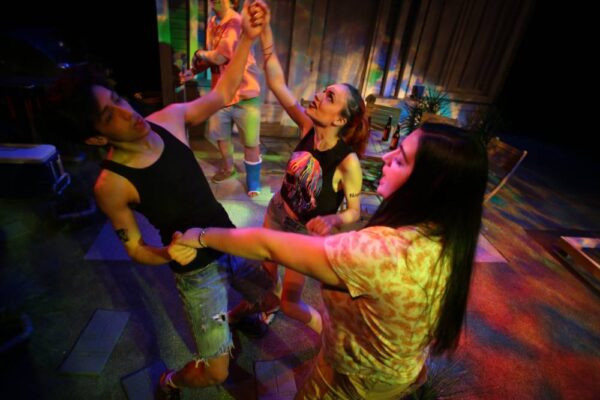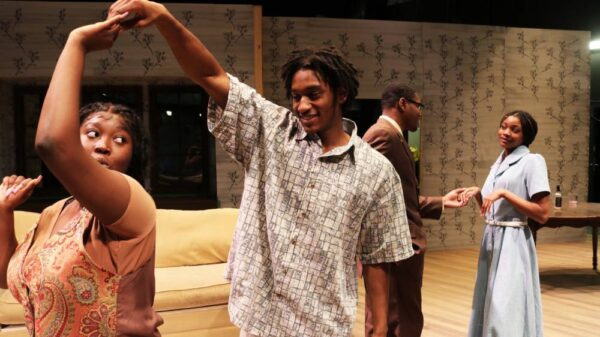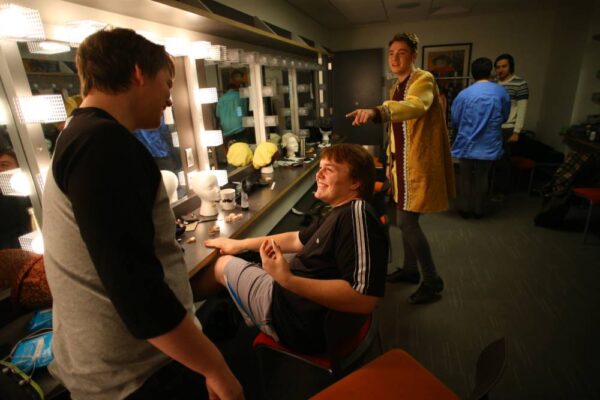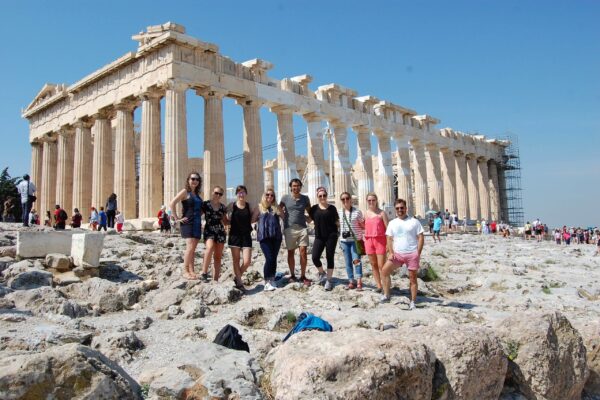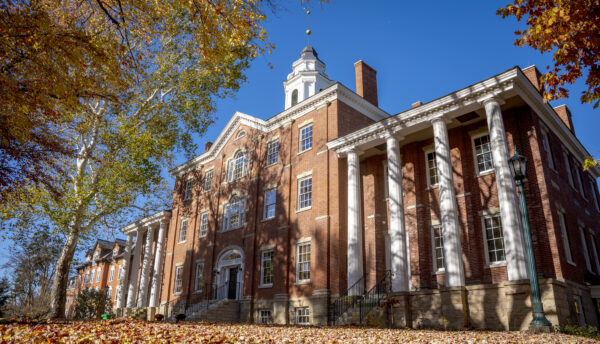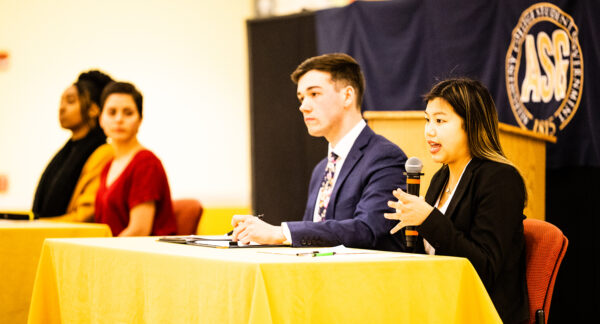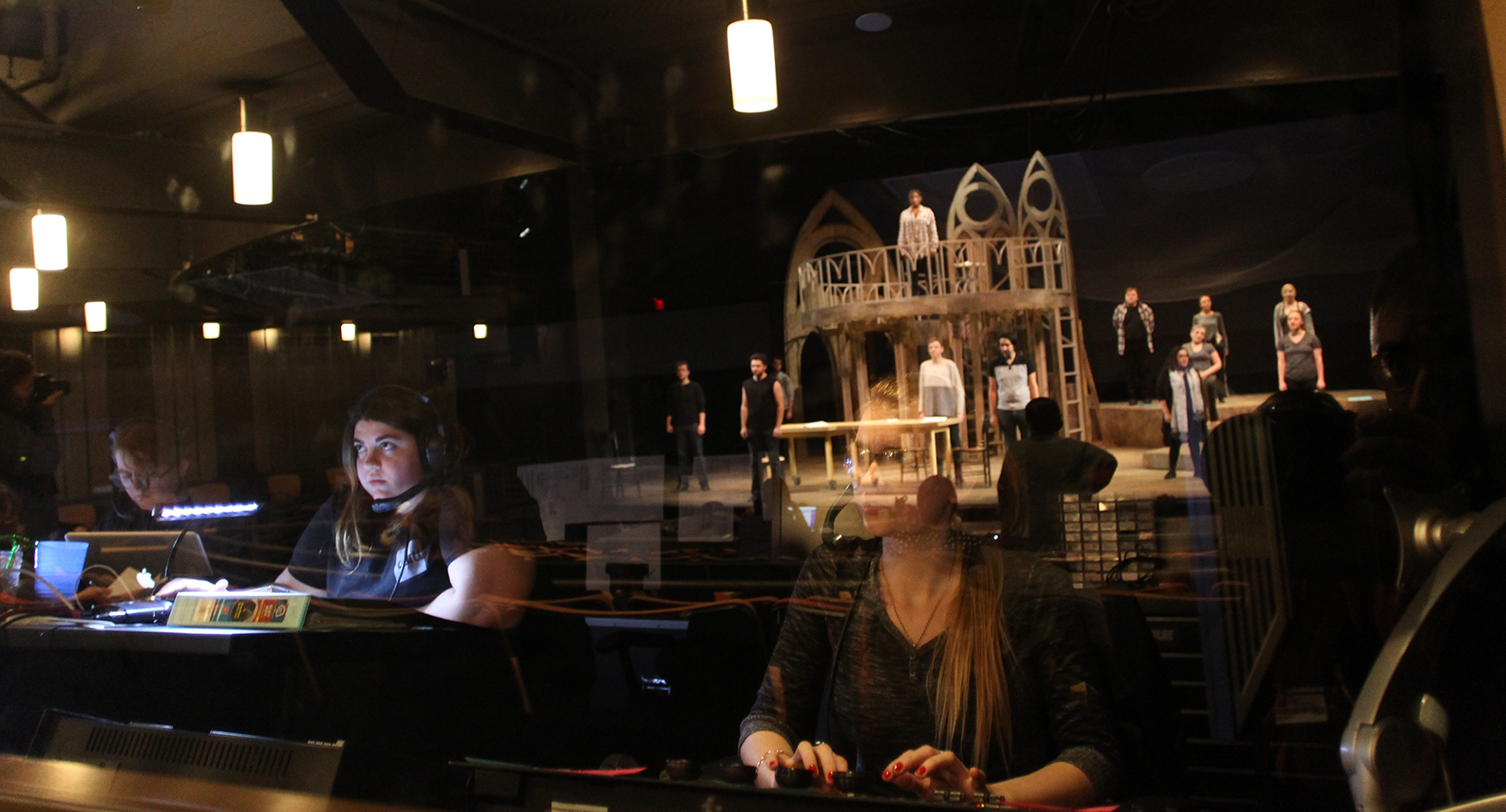
Theatre
Visual and Performing Arts
Why Major in Theatre at Allegheny College
Allegheny Theatre students learn to engage critically and creatively with the wider culture that surrounds them, producing original work and developing skills to connect with audiences in compelling ways.
Unusual Combinations
Students often combine Theatre with:
Division
- Visual and Performing Arts
Program Type
- Major
- Minor
Number of Credits
49 for major24 for minorWhere Theatre Alumni Work Today
Business Manager
Timberlake Studios
Zoe (Aaron) Regan ’13
Co-Artistic Director
Gum-Dip Theatre
Katie Beck ’14
Audio Office Administrator
The Public Theater
Carrie Miller Freeman ’09
Living History Education Program Director
TimeLine Theatre Company
Juliet Hart ’91
Actor and Voiceover Artist
Self-Employed
Tony Chiroldes ’84
Director of Production
Orlando Shakespeare Theater
George Hamrah ’89
Grants Coordinator
Cleveland Foundation
Colleen McCaughey ’13
Director
Retainer Consulting Services
Kelly Mednis ’96
Company Manager
UK tour of Lion King, Disney Theatrical
Fred Hemminger ’97
Assistant Professor of Theatre
Mary Baldwin University
Molly Seremet
Lecturer in Lighting Design & Technology
University of Massachusetts
Amanda Fallon
Education Director
Pittsburgh CLO
Jim Scriven
Production Office
Perelman Arts Center
Itzel Ayala
Drama Director
Theodore Roosevelt High School
Katie Beck
Theatre and Visual Arts Teacher
Grayson School
Mary Lyon
Company Manager
City Theatre Company and Contemporary American Theater Festival
Rachael Ellis
Managing Partner
RPM Broadway
Kara Carothers 2009
Marketing Manager
Public Theater
Karina Mena ’16
Everyone is trained to be onstage, hang lights, build sets, design, direct, sew costumes, run crew, and all the other bits and pieces. It makes for a successful post-collegiate experience because you know everything that goes into putting on a show.
Your Four-Year Journey
Year 1: Understanding
Most majors take all three introductory courses: Introduction to Theatre, Theatre Production (you can focus on scenery, costumes, or lighting), and Acting 1. You can also participate as a performer, stage manager, or technician in Playshop Theatre productions as soon as your first year at Allegheny.
Year 2: New Approaches
In your second year, you’ll take Text and Performance and begin to find your place in theatre through elective courses in Acting, Directing, Design, History or Management.
Year 3: Delving Deeper
The show must go on! As you move into your third year, you will continue in theatre electives, take a Theatre History course (if you haven’t done so already), and elective coursework in Communication, Dance, or Film. All Theatre majors take the Junior Seminar and prepare individual proposals for their senior projects.
Year 4: The Comp
To round out your time at Allegheny, you will complete your electives as well as complete the Theatre Senior Comp, often integrated with a Playshop Theatre production or produced as a workshop. Then you’re all set to go out into the world — break a leg!
Faculty and Staff
Academic Support, Technical Director
M.F.A., University of Iowa; B.A., Grove City College
Email: lyeckley@allegheny.edu
Phone: 814-332-3785
Costume Designer & Shop Manager
Email: ugomez@allegheny.edu
Phone: 814-332-3415
Featured News
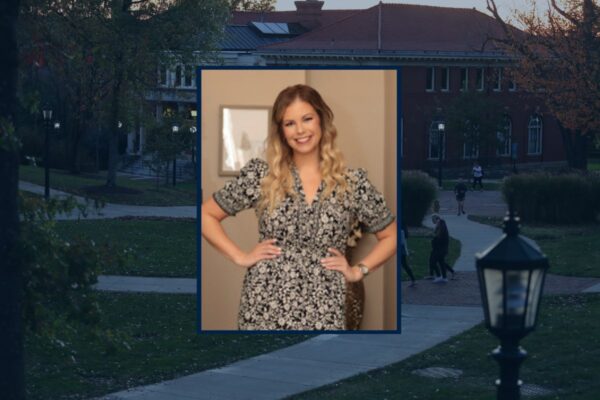
Jennifer DeSalvo ‘07 On Furry Friends, Being An Enthusiastic Student and the Necessity to Give Back
Jennifer DeSalvo ‘07 credits her unusual combination of a double major in managerial economics and communication arts for allowing her to meet a wide variety of friends while at Allegheny, and for inspiring her to become a successful entrepreneur.
Program Contact
Jon Wiebel
Associate Professor of Communication & Media; Director of Speaking


